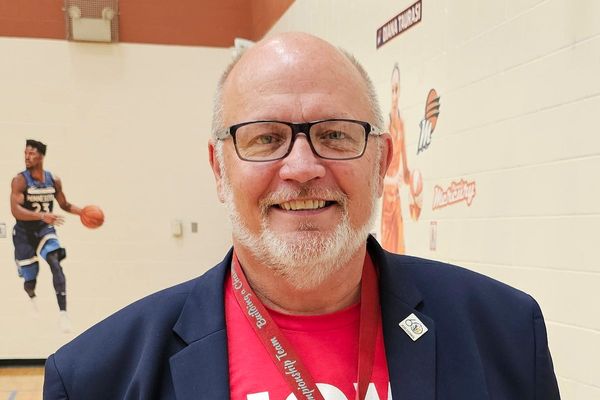
The Queensland government has introduced legislation to allow it to imprison children in police watch houses for adults “even if it would not be compatible with human rights”.
The police minister, Mark Ryan, introduced the amendment as part of a swathe of changes to an unrelated bill in state parliament on Wednesday afternoon. It will require a suspension of the state’s Human Rights Act.
In the bill’s explanatory note, Ryan said the change – which will expire in December 2026 – was necessary to ensure that “immediate capacity issues” in the state’s detention system could be addressed.
“It is not intended to make acceptable the long-term use of watchhouse or corrective services facilities for young people.”
Earlier this month, a Cairns-based youth organisation took the government to court arguing the detention of children in watch houses for extended periods was illegal.
The numerous last-minute amendments also decriminalise public drunkenness, prevent police from covertly surveilling sex workers, reform police disciplinary processes, and preserve the mining town of Glenden, which was to close when the neighbouring mine does. The bill was initially introduced to amend reporting obligations for sex offenders.
Andrew Powell, the manager of opposition business, called the process a “disgraceful abuse of parliamentary process” and the “biggest affront to democracy in Queensland’s history”.
Fellow Liberal National party MP James Lister pointed out that the amendments to the bill, at 57 pages, were longer than the original legislation, just 48 pages – but had not gone to a parliamentary committee.
In a fiery speech, Greens MP Michael Berkman slammed the government for giving parliament just minutes of notice of the decision.
“To call this disgraceful is an understatement,” he said. “It is an absolute dog act for the government to introduce amendments like this with no prior warning.”
It’s the second time the state government has suspended the Human Rights Act, after it passed a bill to make breaching bail a criminal offence for children.
Berkman blamed that earlier decision for filling up the state’s juvenile justice detention facilities.
He said the bill applied to children as young as 10, who were on remand, and who hadn’t been convicted of any crime.
“What we’re actually going to see is some of the most vulnerable people in our community stripped of their rights under the Human Rights Act,” Berkman said.
“The government was unlawfully detaining these children. And so they’re embarrassed about it. Their response is to strip those kids of their human rights.”
The reforms amend an existing requirement that children be shifted from a police watch house to a detention centre “as soon as practicable”.
Instead, the chief executive of the youth justice department will be able to “decide the date” when to transfer the child.
There is no limit to how long a child can be held in an adult detention centre in the bill, but the chief executive is instructed to take into account a range of factors including the child’s mental health, their needs, age and gender. It also allows the state government to establish a detention centre at a police watch house.
“This government makes no apology for our tough stance on youth crime,” Ryan said. “As a result of our strong laws, more young offenders are in custody for longer periods of time and this is impacting youth detention capacity.”
Katherine Hayes, chief executive of the Youth Advocacy Centre, said it was “horrifying” the state’s Human Rights Act has been suspended for a second time.
“The Queensland government keeps overriding the human rights of the most vulnerable and disadvantaged young people in Queensland,” she told Guardian Australia.
Debbie Kilroy, chief executive at Sisters Inside, said that while the government continued to “cage children”, they would continue to come out of detention “more angry and more harmed”.
“This means the community will also be harmed,” she said. “It’s time to reimagine communities with funding taken away from police and prisons so we can develop our own modes of safety and security.”
Maggie Munn, national director at Change the Record, said the government’s move to “sneak” the amendments through in an unrelated bill was “outrageous and harmful”.
“To have a legal instrument like a Human Rights Act in place means there should be protections.”







